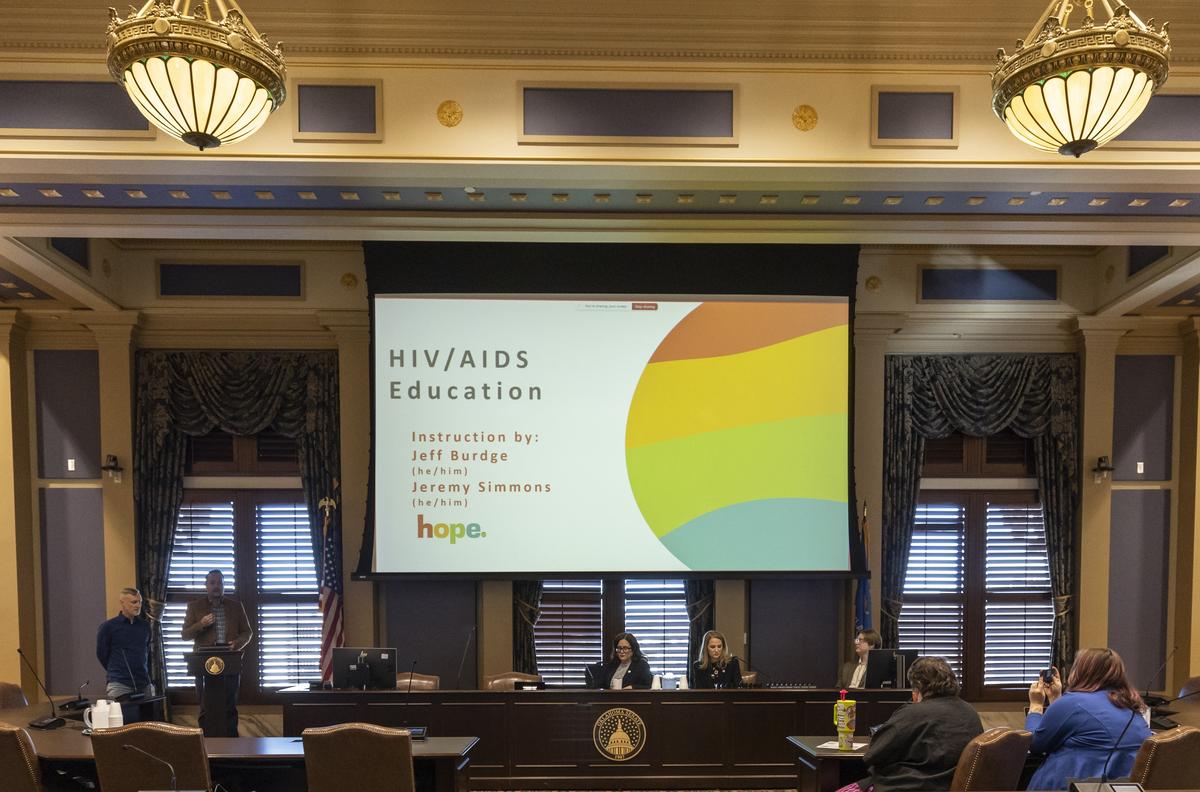In order to provide equal access and equal opportunity to people with diverse abilities, this site has been designed with accessibility in mind. Click here to view
Public forum points to better health outcomes through education/prevention instead of criminalizing HIV

OKLAHOMA CITY – Sen. Carri Hicks, D-Oklahoma City, and Senate Democratic Leader Julia Kirt, D-Oklahoma City, hosted a public forum Wednesday examining how Oklahoma could improve health outcomes by taking a public health policy approach to HIV, instead of continuing to criminalize those living with the virus.
During the forum, the lawmakers heard from individuals with expertise in HIV criminal law, public health, and other advocates who stressed that criminalizing HIV has not improved public health in Oklahoma, but adopting public health policy promoting education would.
“Many Oklahomans may not realize that there are now medications that make the virus completely undetectable, and at that point there is no chance of transmission, yet we have outdated laws on the books that continue to stigmatize HIV and those living with it,” Hicks said. “We will have better health outcomes if we modernize our laws and promote health care policy that actually does reduce transmission.”
Among the presenters was Sara Raines with the Oklahoma City-County Health Department.
“We know that trying to make public examples out of people doesn’t really deter other people’s behavior. That’s not a super-effective prevention tool…here we are in 2024, and Oklahoma very much still has an HIV epidemic.” Raines noted that prior to criminalizing HIV, health officials had used counseling and education to successfully modify behavior.
Vivian Topping is director of advocacy and civic engagement with Equality Federation, an organization dedicated to advocacy for LGBTQ+ people throughout the country.
“The current law in Oklahoma states that a person living with HIV can go to prison for five years for not disclosing their status before consensual sex, even when they did not intend to harm anyone…and no harm resulted,” Topping said. “This is a more severe punishment than for second degree manslaughter or domestic abuse by strangulation.”
Topping said that since 2024, 16 states have modernized or completely repealed HIV criminalization laws, most recently in states like Kentucky and Tennessee, proving that modernizing HIV laws is a nonpartisan, non-political issue.
Kirt said the data presented at the forum supports the need to shift to a public health policy approach.
“HIV transmission is a growing problem throughout our state, in urban and rural communities alike,” Kirt said. “Our current law discourages people from getting tested or treated. After decades of making HIV a crime, there’s no evidence this has promoted public safety or prevented new HIV cases. Instead of spending tens of thousands of dollars to put a person in jail, for just a fraction of that cost, we could promote education and prevention. This isn’t a partisan issue – it’s about improving health outcomes and saving taxpayer dollars.”
-END-
For more information, contact:
Sen. Carri Hicks at 405-521-5543 or Carri.Hicks@oksenate.gov
Sen. Julia Kirt at 405-521-5636 or Julia.Kirt@oksenate.gov
 Oklahoma Senate
Oklahoma Senate

